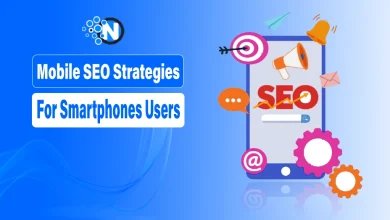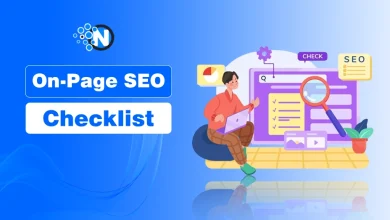Intelligent Content vs Traditional SEO: The Paradigm Shift Happening Now

The world of SEO is at a crossroads. For years, businesses have relied on traditional practices like keyword density, backlinks, and technical tweaks to climb search rankings. But the rules have changed.
Search engines are no longer mechanical pattern matchers; they are intelligent systems capable of understanding context, intent, and user satisfaction at levels once thought impossible. This shift has flashed a revolution: Intelligent Content.
Unlike traditional SEO, which clings to outdated tactics, Intelligent Content aligns with how modern search engines and users actually consider, act, and decide. Here, we are going to deeply discuss this paradigm shift in details.
Why Traditional SEO Is Becoming Obsolete?
Traditional SEO worked when algorithms were simplistic. Keywords equaled relevance, links equaled authority, and technical compliance equaled quality. But this worldview is outdated. Search engines now make use of machine learning, natural language processing, and behavioral data to evaluate content like humans do and sometimes better.
Agencies still sell keyword density reports and backlink packages, but these tactics produce little real value. Businesses spend thousands on technical audits that highlight minor issues but fail to move the needle. In contrast, Intelligent Content anticipates algorithmic direction which serves both users and search engines simultaneously.
1. Evidence of the Shift
The proof is already visible in recent Google updates. The Helpful Content System prioritizes expertise and genuine value over keyword tricks. The November 2024 Core Update wiped out countless websites that clung to traditional playbooks, while rewarding content with topical authority.
Meanwhile, UK businesses pour £3.2 billion annually into SEO services, yet most still see organic visibility shrinking. Competitors using Intelligent Content spend less but achieve more predictable, scalable outcomes. The economics alone show that clinging to traditional SEO is like paying for a game that no longer exists.
2. The Fundamental Disconnect
Traditional SEO tactics like keyword research, link building, technical audits treat search engines as mechanical puzzles to manipulate. But search has evolved into an intelligence system.
- Keyword research identifies terms but misses intent.
- Link building produces artificial signals that algorithms discount.
- Technical audits flag issues that barely affect rankings.
- Content optimization churns out formulaic, lifeless articles.
As Jim McWilliams, CEO of Lyxity, explains: “Traditional SEO is like teaching someone phrases in a foreign language without context. Intelligent Content understands meaning, not just words.”
3. The Keyword Density Delusion
One of the clearest signs of SEO’s outdated thinking is keyword density obsession. Agencies still recommend 2-3% keyword frequency, adding LSI terms and rigid placements. But today’s algorithms don’t count words, they interpret meaning.
For example, ranking for “AI content writer” doesn’t require repeating the phrase dozens of times. Instead, content must explain how AI content works, its applications, challenges, and benefits. Intelligent Content maps out semantic relationships and ensures comprehensive topical coverage.
4. The Backlink Building Charade
Traditional SEO’s backlink obsession represents another paradigm trapped in the past. Agencies promise to build 50 high-quality backlinks monthly, as if search engines still operate like academic citation indices.
They craft guest posts, submit to directories, and orchestrate link exchanges. Thousands of pounds flow into link building campaigns that generates reports showing Domain Authority increases while actual rankings stagnate.
Intelligent Content flips the model: instead of chasing links, it earns them naturally by offering genuine value. Research papers, frameworks, and insights get cited organically, creating authority without spammy outreach.
5. The Technical SEO Theatre
Technical SEO has turned into performance art, massive audits, crawl reports, and schema fixes that rarely influence rankings. Unless your website is fundamentally broken, these optimizations add little value.
Intelligent Content automates technical compliance. Headings, schema, and metadata are generated dynamically. There are also freeing businesses from paying for cosmetic fixes. The focus shifts from rituals to results.
6. The Content Optimization Fallacy
Traditional SEO produces “SEO content”: formulaic articles designed for algorithms, not users. They check all the boxes, keywords in headings, internal links, meta tags, but fail to engage or convert.
Intelligent Content, on the other hand, creates value-first resources. It anticipates questions, addresses user intent, and evolves with trends. This isn’t about optimisation tricks, it’s about producing content that’s truly optimal for users and algorithms alike.
7. The User Signal Revolution
The most decisive change is how search engines now prioritize user signals over old ranking factors. Engagement, dwell time, satisfaction, and bounce rates carry more weight than keywords or links.
Traditional SEO cannot manipulate these signals. But Intelligent Content improves them naturally by delivering what users want. Complete, insightful, and actionable resources keep users engaged in boosting satisfaction metrics and rankings simultaneously.
8. Authority Building the Right Way
Authority no longer comes from sheer content volume or artificial signals. Modern search engines evaluate depth, accuracy, and topical coverage.
Traditional SEO floods websites with thin articles that dilute authority. Intelligent Content builds topical clusters and comprehensive resources that establish real expertise. Authority isn’t manufactured, it’s earned.
9. Solving the Scale and Speed Paradox
Manual SEO tactics are too slow in this competitive landscape. Algorithms and user expectations have already shifted with the time traditional strategies show results.
Intelligent Content resolves this paradox with automation. It scales understanding and adapts to algorithm updates in real time for businesses to keep pace with constant change.
10. Measuring What Really Matters
Traditional SEO measures the wrong things the wrong way. Rankings for specific keywords. Domain Authority scores. Number of backlinks. Technical audit scores. These metrics might indicate activity, but they don’t measure impact. Businesses celebrating position #3 for their target keyword while their overall organic traffic declines are winning battles while losing the war.
Intelligent Content measures what matters: user satisfaction, conversion rate, and revenue contribution. The focus is not on “green arrows” in reports but on genuine business outcomes.
11. Platform Integration as a Strategic Edge
Traditional SEO treats content management systems as obstacles to overcome rather than capabilities to influence. SEO plugins attempt to force platforms into compliance. Technical audits identify platform limitations.
Consultants recommend expensive platform migrations to achieve marginal SEO improvements. The relationship between SEO and CMS remains adversarial, with each constraining the other.
Intelligent Content integrates deeply with content platforms and transforms the constraints into capabilities. This deep integration turns platforms like WordPress or Drupal into intelligent engines that evolve content automatically. What traditional SEO sees as a limitation becomes a competitive advantage.
12. The Competitive Displacement
Every algorithm update widens the gap. Businesses clinging to outdated tactics fall behind, while Intelligent Content adopters capture market share.
This i snot an incremental shift, its displacement. Traditional SEO is cavalry; Intelligent Content is tanks. Early adopters are already building content monopolies while competitors debate keyword percentages.
Conclusion
The paradigm shift is not on the horizon, it has already happened to much extent. Traditional SEO is digital archaeology, clinging to rituals that no longer move rankings or revenue. Intelligent Content, by contrast, aligns with the realities of modern search, focusing on intent, value, and outcomes.
Businesses now face a clear choice: remain trapped in outdated SEO tactics or embrace Intelligent Content as the foundation of future growth. Those who adapt will dominate. Those who resist will fade into irrelevance. The only question is: will you evolve with the paradigm shift, or be displaced by it?




